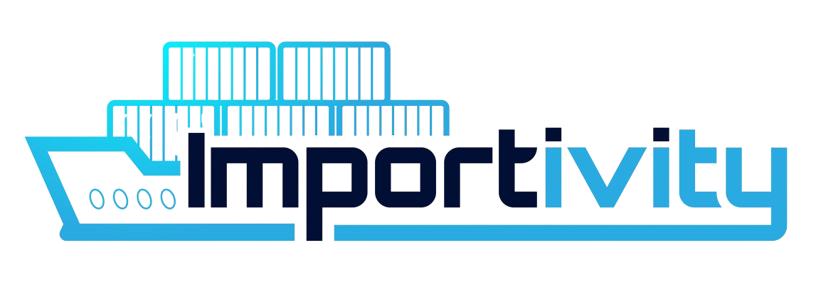In the world of manufacturing and product sourcing, MOQs play a crucial role. They dictate the minimum amount of product a supplier requires you to purchase in a single order. High MOQs can be a big problem for businesses, especially new ones or those with limited money. These high minimum ordering quantities make it hard to manage inventory and production for suppliers.
This blog dives deep into MOQ’s affect on businesses, and a proven way to get a lower minimum quantity order. Get practical tips, negotiation tricks, and real examples. We’ll help you land good deals with suppliers and improve inventory management.
What is the Meaning of MOQ? Understanding the Basics
Before diving deeper into the impact of MOQs and negotiation strategies, it’s crucial to understand the meaning of MOQ itself. MOQ stands for ‘Minimum Quantity Order’. The Minimum Order Quantity (MOQ) is the smallest number of products a supplier will sell in one order. It’s also sometimes called the Minimum Ordering Quantity or Minimum Quantity Order. This benefits both sides. Suppliers get enough production, and buyers pay reasonable prices.
Minimum Order Quantity Example:
Imagine you want to purchase custom-printed t-shirts. A supplier might have an MOQ of 100 units. This means you must order at least 100 t-shirts in one purchase.
The Business Impact of MOQs
High MOQs can significantly impact businesses in various ways:
- Cash Flow: Large upfront costs can strain cash flow, especially for small businesses.
- Storage Space: Storing excess inventory requires dedicated space and resources.
- Sales Forecasting: Wrong sales forecasts can lead to having too much or too little stock because of minimum order amounts.
However, in certain scenarios, high MOQs might benefit businesses:
- Cost Savings: Larger orders often translate to lower per-unit costs due to economies of scale.
- Guaranteed Supply: High minimum orders help guarantee a steady supply of essential materials.
Case Study
Let’s consider a small jewelry business struggling to meet a high MOQ for gemstones. This could hinder their ability to offer diverse product lines or cater to smaller customer orders.
Strategic Relationships with Suppliers
Building strong relationships with suppliers is key to negotiating lower MOQs. Here’s how:
- Open Communication: Regularly communicate your needs and challenges to understand their constraints.
- Shared Goals: Emphasize how lower MOQs can benefit both parties in the long run.
- Flexibility: Be open to alternative solutions, such as phased deliveries or split orders.
If you build good relationships with suppliers, you can negotiate lower minimum order quantities.
Leveraging Market Research to Negotiate Better Terms
Conducting thorough market research can strengthen your negotiation position:
- Demand Analysis: Demonstrate potential sales volume and market demand for the product.
- Competitive Landscape: Check competitor prices and minimum order quantities (MOQs). You need to understand what other companies are charging and how many products they require in an order.
- Data-Driven Approach: Show suppliers clear data about your sales potential. This will help them understand why you deserve low MOQs.
Creative Negotiation Tactics and Alternatives
Beyond building relationships and leveraging research, here are additional strategies:
- Partnering with Other Businesses: Collaborate with other companies to collectively meet MOQ requirements.
- Dropshipping: Utilize dropshipping services where suppliers handle inventory and fulfillment, eliminating MOQ concerns.
- Local Sourcing: Explore local suppliers who might be more flexible with MOQs due to smaller production scales.
Remember, each approach requires careful consideration and tailoring to your specific situation.
How Importivity Helps You Overcome High MOQ Barriers
Importivity is a product sourcing agent that can help you deal with MOQ challenges. They offer a range of services to businesses looking to source products directly from factories in China, including:
- Product Sourcing: Importivity can help you find reliable suppliers and negotiate lower MOQs.
- Dropshipping: Importivity takes care of your dropshipping needs. This means you can sell products without having to store them yourself.
- Custom Packaging: Importivity can help you design and produce custom packaging for your products.
- Private Label and White Label Services: They can help you create your own branded products.
Importivity can help you avoid high minimum order quantities. This means you can access more products without having to store a lot of inventory.
Takeaways
Securing low MOQs is crucial for businesses of all sizes. Once you understand how MOQs impact your business, you will be able to build better supplier relationships. Talk to clients openly and build trust. You will also be able to use market research to show potential sales and demand. Try creative tactics by partnering with others, using dropshipping, or finding local suppliers. This will help you manage your inventory better and open doors to new growth.
Lastly, be confident and have a well-planned strategy when negotiating MOQs. Armed with the right strategies and a reliable partner like Importivity, you can transform high MOQs from a barrier into an opportunity for innovation and market expansion.
Frequently Asked Questions (FAQs)
1. How can Importivity help me secure lower MOQs?
Importivity has extensive experience negotiating with Chinese factories. They’ve built strong relationships, which they can use to get you lower minimum order quantities. Importivity understands the challenges that suppliers face. They know how to present your needs to suppliers in a way that gets results. This increases your chances of getting lower minimum order quantities.
2. What are the benefits of using Importivity’s dropshipping service?
Dropshipping removes the need for you to store products yourself. This reduces the costs you pay upfront. You also don’t need as much storage space. Importivity takes care of finding products, storing them, getting them ready for sale, and shipping them. This lets you focus on marketing and selling your products without the hassle of minimum order quantities.
3. Can Importivity help me create my own branded products?
Yes, Importivity offers private label and white label services. Importivity helps design your packaging, labels, and branding. This lets you build your own brand without needing mass production.
4. What types of products can Importivity source?
Importivity has a vast network of suppliers across various industries. Importivity can find many different products for you. This includes everyday goods, raw materials, and even custom-made items.
5. How much does Importivity’s service cost?
Importivity offers flexible pricing plans tailored to your specific needs. Importivity is upfront about their pricing. They can talk to you about different options to find a cost-effective solution that fits your business needs.




